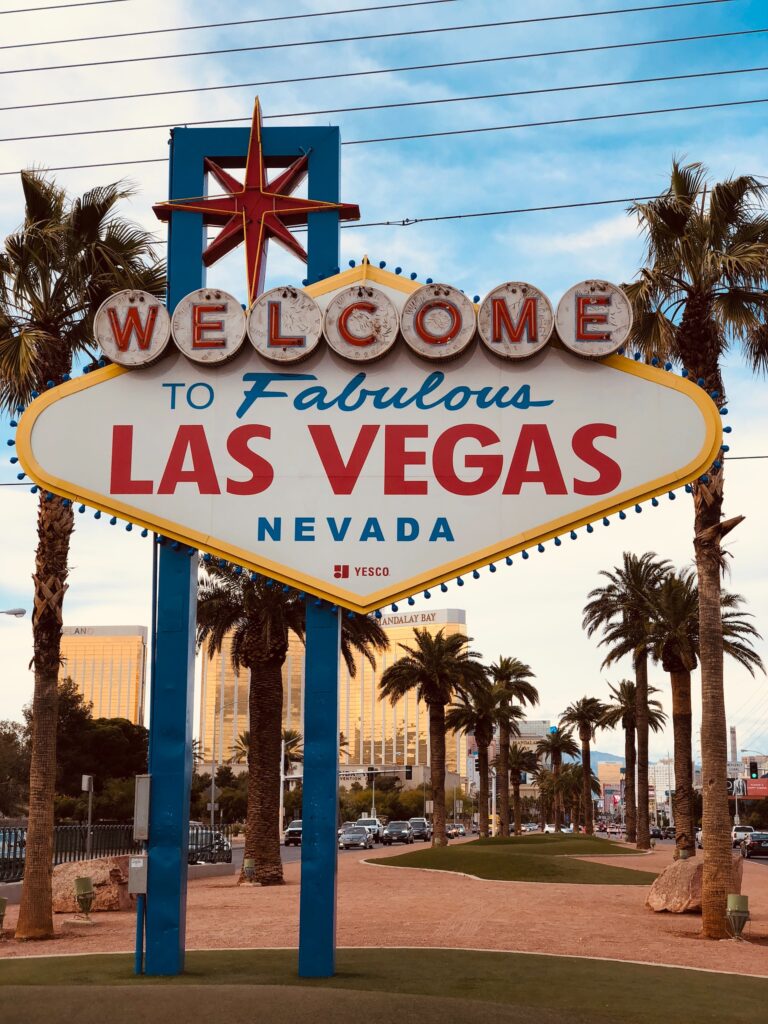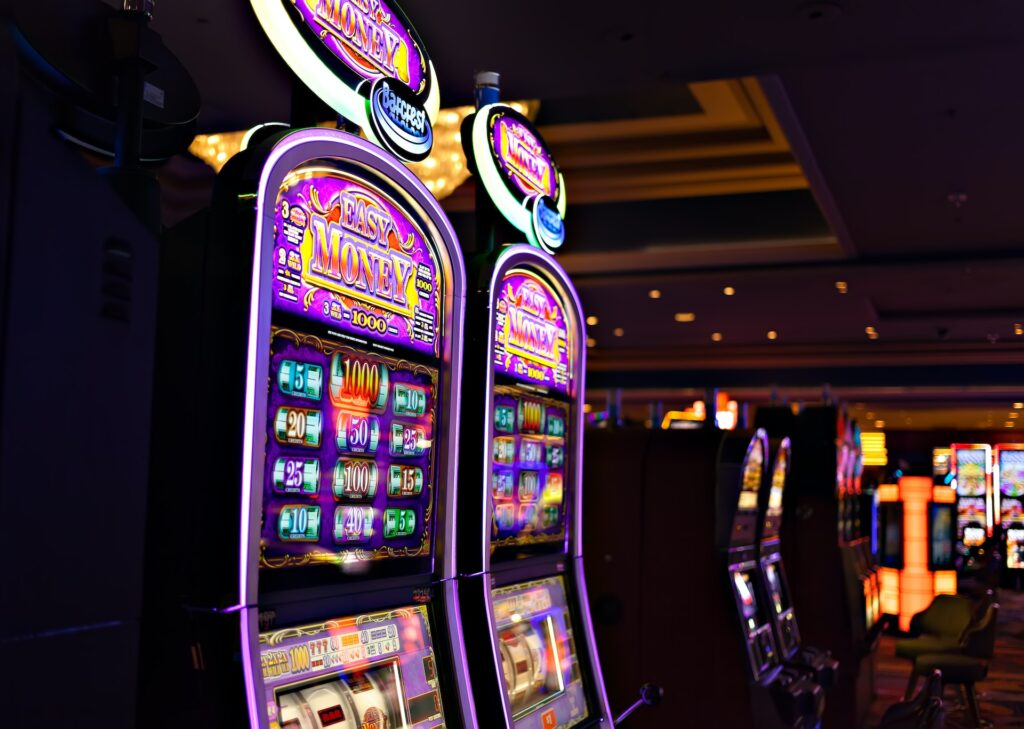What goes on in Vegas, stays in Vegas. Sadly, more often than not, that includes leaving behind a large chunk of your bank balance. Not many of us have hit the City of Sin for a long, crazy weekend and emerged with either our dignity or financial security in tact, nor our wallets in a healthy state for that matter.
Las Vegas isn’t called the city of ‘lost wages’ for nothing. With its dazzling lights, extravagant shows, and opulent casinos, it’s easy to get carried away and lose control of one’s finances. If you’re not careful, money will disappear like the magiacian at one of those Vegas shows
The importance of learning how to manage your money in Vegas should not be underestimated. With this approach in mind, here are 8 tips for managing your money in Vegas.
Manage Your Excitement
Many Vegas-goers have good intentions of managing their budget, with strict limits pledged to fearful partners, and the best will in the world to adhere to them present when you step off the plane. But anyone who has been to Vegas will know that when the bright lights are twinkling, music blaring and the iconic sound of coins is crashing, it’s pretty difficult not to get carried away.
A little mindfulness in this situation is key; remember that this sensory overload is specifically designed to evoke a feeling of being out of control and promote bigger spending. So be bigger too, and resist.


Bring Cash, Choose Credit Cards Over Debit
ATM fees in Las Vegas can be exorbitant, particularly inside casinos and tourist hotspots like The Strip, and can charge anywhere from $3- $10 just for the privilege of losing your own money later in the night.
To avoid these unnecessary charges, it’s wise to bring enough cash for the duration of the trip. This not only saves money on fees but also helps in setting a clear budget, making it easier to keep track of spending. Go with the mindset of only spending the cash that you bring.
If you do choose to use a card, credit cards generally offer greater protection against fraud and unauthorised transactions compared to debit cards. That said, it’s crucial to avoid using your credit card for cash withdrawals. Most credit card companies charge hefty fees and interest rates for cash advances, which can quickly accumulate and lead to financial strain.
Withdrawing cash on a credit card is arguably the most expensive way to withdraw money. Moreover, a cash advance will leave a mark on your credit file, which can affect your credit rating. Unfortunately, most credit card companies will not let you disable credit card cash advances. Check with your bank if you can limit or opt out of cash advances before your come to Vegas.

Learn How To Play
Feeling intimidated by poker or blackjack, or even the slot machines? If you’re going to play the game right, then it’s a good idea to learn how it actually works first.
Knowledge is power, especially when it comes to gambling. Before you sit down at any table or feed money into a machine, take time to understand the rules, odds, and basic strategies. Many casinos offer free lessons during off-peak hours, typically in the mornings, where dealers will teach you the fundamentals of popular games like blackjack, craps, and poker without any pressure to bet.
Start with the games that offer the best odds for players. Blackjack, for instance, has one of the lowest house edges when played with basic strategy—often less than 1%. Baccarat is another relatively player-friendly option. Conversely, games like keno and certain slot machines can have house edges exceeding 25%, making them poor choices for budget-conscious players.
Consider practicing online with free casino apps or sites before your trip. Many websites offer free versions of casino games where you can learn without risking real money. Understanding when to hit, stand, double down, or split in blackjack, or knowing the betting patterns in craps, can significantly improve your chances and help your bankroll last longer.
Don’t forget to learn about the specific rules and variations at different casinos, as these can vary and affect your odds. Some blackjack tables pay 6:5 instead of the traditional 3:2 for blackjack, which dramatically increases the house edge. Always check the table minimums and rules before sitting down to play.

Set Betting Limits
It may seem obvious, but setting limits is a precautionary measure so often overlooked. Gambling is an integral part of the Las Vegas allure, but it’s essential to approach it with caution and self-discipline. Establishing a gambling budget and sticking to it can prevent excessive losses and ensure that the casino experience remains enjoyable rather than financially devastating.
Afraid setting a limit will put a downer on the vibe before it’s even begun? Think your willpower negates the need for it? Whatever your reason for not setting betting limits, it’s time to bench them in favour of common sense. Games at the casino might be exciting, but they should be treated responsibly and with an acknowledgement of the risk involved.
Be Wary Of Too-Good-to-Be-True VIP Deals
In an effort to lure tourists, many Vegas promoters offer seemingly unbeatable deals on VIP packages, nightclub entry, or exclusive events. While some of these offers may be legitimate, others can be misleading or even fraudulent.

Budget For The Complete Experience
While gambling often takes centre stage in Vegas money management discussions, it’s crucial to remember that your trip budget extends far beyond the casino floor. Las Vegas is designed to separate you from your money through multiple channels, and failing to account for all expenses can quickly derail your financial plans.
Create separate budgets for dining, entertainment, shopping, transportation, and tips—yes, tips are a significant expense in Vegas where gratuities are expected everywhere from valet parking to cocktail service. Fine dining restaurants can easily cost $100-300 per person, while even casual meals on the Strip command premium prices. Factor in show tickets, which can range from $50 to several hundred dollars, and spa treatments, shopping, and nightlife cover charges.
Consider booking some meals and entertainment in advance to lock in prices and avoid the temptation of constant upgrades. Many hotels offer package deals that bundle accommodation with dining credits or show tickets, which can provide better value than paying à la carte. Set aside a realistic amount for “Vegas moments”—those spontaneous experiences that make the trip memorable—but keep this separate from your essential expenses budget.
Remember to account for taxes and resort fees, which can add 15-20% to your accommodation costs, and don’t forget about transportation to and from the airport. By planning comprehensively, you’ll avoid the shock of hidden costs and can truly enjoy your Vegas experience without financial stress.

Accept That The House Always Wins
Without wishing to get technical, it’s important to grasp the meaning of ‘the house edge’. Sure, you can have wins when you gamble in short bursts, but in general, luck reduces over time and returns to the average house edge the more you gamble.
This basically means that, in the long run, you will lose more than what you will have won. As the old saying goes; ‘the house always wins’. Remember then, that a trip to Vegas is certainly not an exercise in making money; that’s what boring ol’ work is for.
Instead, treat the gambling as fun and spectacle, and don’t chase a win that will, unfortunately, never come.
Stop Chasing Your Losses
Any professional or skillful gambler will tell you; knowing when to quit is the key component in making any money on the tables. And just because you’re only here for fun doesn’t mean you shouldn’t adopt a similar approach. Betting more to make up previous losses incurred will only result in further disappointment. End of.
The Bottom Line
A trip to Las Vegas doesn’t have to result in the pain of a thousand hangovers. By managing your money, one can still enjoy all that Sin City has to offer without succumbing to its potential financial pitfalls. With careful planning, discipline, and a keen eye for deals, a memorable Vegas vacation is well within reach.





